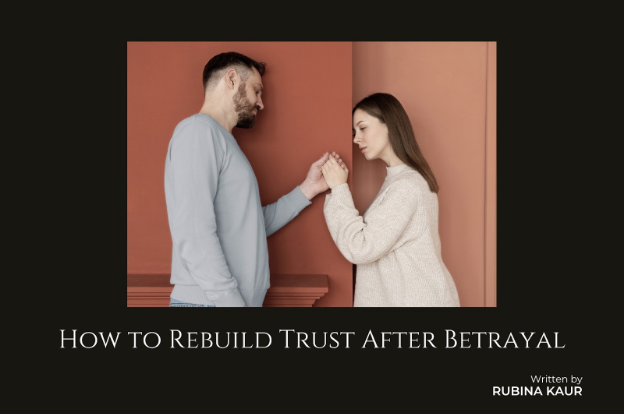








Trust is the foundation of every meaningful relationship whether it's with a partner, friend, or family member. But when betrayal strikes, that foundation can feel shattered. Betrayal doesn't always come in the form of infidelity; it can also be lies, broken promises, or emotional neglect. Rebuilding trust after betrayal is challenging, but it is possible when both people are committed to healing.
In this article, we'll explore how to rebuild trust after betrayal, why it's so difficult, and the steps you can take to restore connection and emotional safety.
Betrayal cuts deep because it attacks the very core of emotional security. When someone we love and depend on breaks our trust, it can cause feelings of shock, anger, grief, and even trauma.
Common emotional effects of betrayal include:
Famous point: Dr. John Gottman, a leading relationship researcher, explains that betrayal is one of the most damaging forces in relationships, but it can also be a wake-up call to build a stronger, more honest foundation.
Trust, once broken, cannot simply be "earned back" with words. It requires consistent action, transparency, and time. Many struggle with the fear: "What if it happens again?"
The challenges include:
Research point: A study in the Journal of Social and Personal Relationships shows that forgiveness and consistent behavioral change are the strongest predictors of restored trust.
Healing begins with honesty. The person who caused harm must take full responsibility without excuses. Minimizing or deflecting only deepens wounds.
Example: Instead of saying "I made a mistake, but you're overreacting", a healthier response is: "I broke your trust, and I see the pain I've caused you."
The betrayed partner must be given the freedom to express hurt, anger, or sadness. Suppressing emotions creates long-term resentment.
Journaling, therapy, or open conversations can help process these feelings.
Actions speak louder than words. Trust is rebuilt when the hurt party sees consistent, reliable behavior over time.
Keeping promises, being transparent, and showing accountability every day are critical.
The betrayer must be open about their actions moving forward whether it's being honest about whereabouts, intentions, or feelings. Transparency builds a sense of safety.
Couples therapy or individual counseling can guide both parties through structured healing. Therapists provide tools to improve communication, rebuild intimacy, and break unhealthy cycles.
Forgiveness doesn't mean forgetting, it means choosing not to let bitterness define the relationship. Forgiveness is often a process, not a one-time decision.
Famous example: Oprah Winfrey once said, "Forgiveness is giving up the hope that the past could have been any different." This perspective allows healing without excusing the betrayal.
Betrayal damages emotional and physical intimacy, but rebuilding it is possible with patience.
Tip: According to Esther Perel, renowned psychotherapist, intimacy after betrayal requires balancing two needs: safety and freedom. Rebuilding trust means creating both security and space in the relationship.
Not all relationships survive betrayal. Sometimes, repeated harm or lack of genuine accountability makes healing impossible. In such cases, walking away can be the healthiest choice.
Signs it may not work out:
Whether or not the relationship continues, the betrayed person must prioritize self-healing.
Famous point: Maya Angelou once said, "When someone shows you who they are, believe them the first time." Moving forward often requires wisdom to discern between genuine change and repeated patterns.
Rebuilding trust after betrayal is not easy, but it is possible. It requires accountability, patience, transparency, and compassion from both sides. For some, betrayal becomes the end of a chapter; for others, it becomes the turning point toward a more authentic and resilient relationship.
Remember: trust isn't rebuilt overnight; it's a slow, intentional process of showing up consistently. And whether you stay or leave, the ultimate goal is healing, growth, and emotional freedom.
Whether you're looking to strengthen an already healthy relationship or address specific challenges, couples therapy can provide valuable tools for growth and connection. Contact us to learn more about our couples counseling and relationship therapy services.
If this article resonated with you, share it with others who might benefit from these insights.